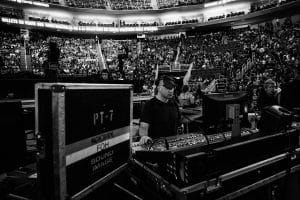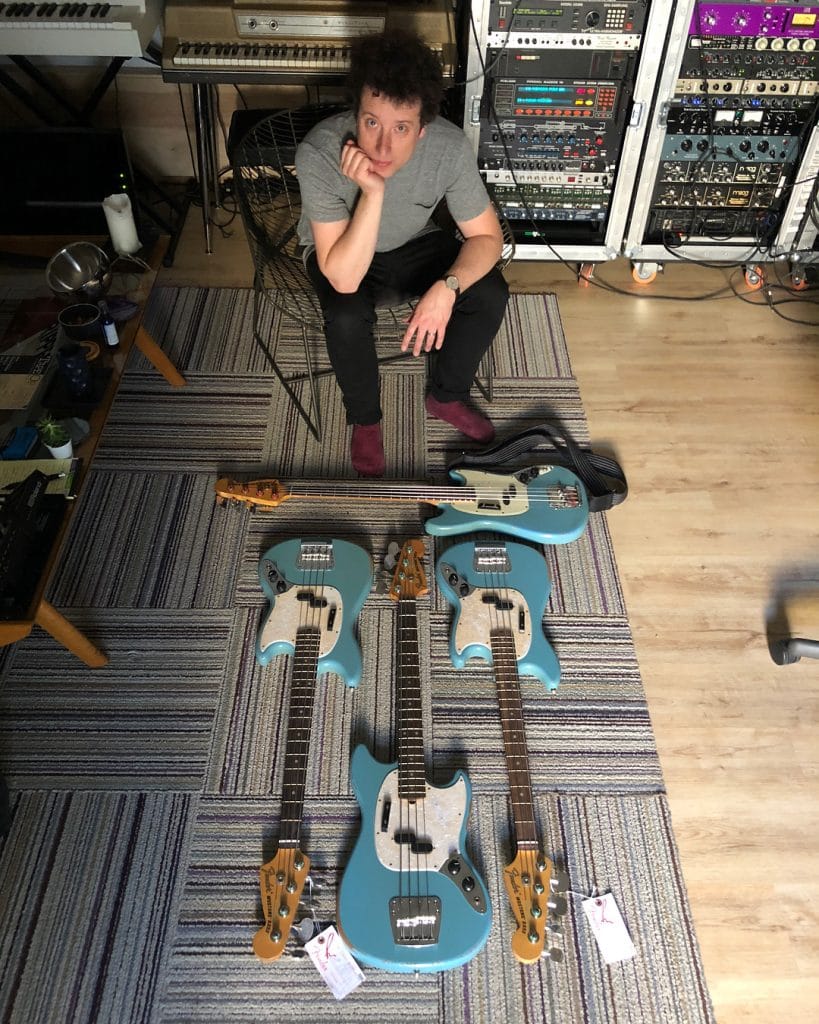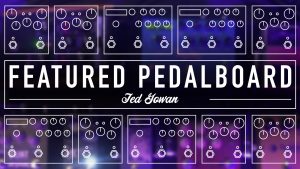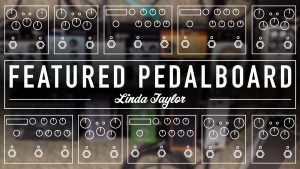
Artist Feature: Chris Fudurich
Producer Chris Fudurich is a man of many talents. With over 20+ years of experience in the music industry under his belt, Fudurich’s list of
Free US Shipping On Orders Over $49
Easy 30-Day Returns
Financing Available Through ![]()

While Justin Meldal-Johnson may be best known for his tenure as bassist for Beck, he has also worked as producer and multi-instrumentalist for an impressive and seemingly endless list of iconic bands and artists over the course of last two decades. He has played with Nine Inch Nails, Tori Amos, Macy Gray, Air, Frank Black, Pink, Emmylou Harris, Goldfrapp, Garbage, The Dixie Chicks, and School of the Seven Bells (see the full list here). He’s produced records for M83, Wolf Alice, Jimmy Eat World, The Raveonettes, and is currently working on the new Metric record slated for release later this year. He has served as musical director for artists like Kesha and Sarah Bareilles, and in 2017 Fender announced the release the JMJ Mustang Bass, modeled after Justin’s 1966 Daphne Blue 4-string Mustang bass (pictured above).
We recently got a chance to chat with Justin about his extensive career and how he uses his TimeLine and Ojai in the studio.
What was your first producing gig and how did it come about?
I think the first gig where I actually got paid any kind of money and that was a legit project was the LA band Division Day, their album Visitation, which I think is still quite a cool album. I wish that band was still around, they were genius. Anyway, it came about because my manager was their label. Kind of like nepotism, but a gig is a gig.
Has producing changed how you play the bass at all? How so?
Oh for SURE, in a big way. I used to be so flashy, and now I can moderate myself more because I always think bigger picture now, even if I’m just occupying the bass chair – I can’t help myself. I’m definitely a little more minimal now.
You’ve also worked as a music director for several artists — can you tell us more about that? How has that influenced your work as a producer? As a musician?
Yeah, I’ve done that for Charlotte Gainsbourg, Beck, M83, Ke$ha, Sara Bareilles, and a few others. I really like that work, because my heart is firmly in the live performance area, and it’s super fun to help put shows together, particularly when it comes to sonics, parts, and arrangements. I don’t really know how to say that it’s influenced my playing or production, or vice versa. I mean, I’m sure it has, but it would be hard for me to describe it subjectively. All my roles, writer, programmer, producer, player, MD, they all get mixed up in one big stew and work with each other.
As a producer, what sorts of things do you do to prepare before going into the studio with a new artist?
Just trying to make sure that the band is reasonably prepared without over-preparing. I want to burn as little paid studio time as possible, but I want them to also have time to feel at ease and have fun in there. In other words: a pretty healthy amount of old-school pre-production rehearsal.
Can you tell us about your longtime collaboration with Beck? How did you two meet?
We met through his dad, David Campbell, the string arranger. I met David while working as a janitor at Cherokee Studios in Hollywood straight out of high school. He offered me a job to be his helper/gopher/assistant person, which was great. Soon after that, I met his son. I think we were both 18. Many years later, after he had a hit with Loser, he asked me to join up in his band, somewhere around 1996, and I’ve been doing that on and off ever since.
Can you tell us more about how you’re using TimeLine? You’re also using Ojai with your rig, is that right?
I use TimeLine in the studio, and it’s great. Quickly locking in a BPM then switching over to a different texture is nice. I dig the sound of it.
Ojai is great for a super compact rig that I can take to sessions when I don’t need tons of pedals, but it’s powerful and sounds great. In my studio, it’s like the perfect little power station for setting up pedals on top of a Wurlitzer, or for making an effects chain of pedals for processing something out of the computer.
You’ve played with and produced such a wide variety of great artists over the course of your career. Does any particular collaboration or live performance stand out for you?
I guess my work performing or recording with Beck, Nine Inch Nails, and Air has been my favorite work as a player. M83 is my dream production collab, for sure, and it’s a long-term association that I really enjoy.
Any recording tips or suggestions for bassists about to go into the studio for the first time?
Watch what everybody else is doing and learn. Don’t make the mistake I used to, which is bringing too much gear. Get a sound. Play in tune.
Subscribe to our newsletter to be the first to hear about new Strymon products, artist features, and behind the scenes content!

Producer Chris Fudurich is a man of many talents. With over 20+ years of experience in the music industry under his belt, Fudurich’s list of

Ted Gowans got his first big musical break playing guitar and keyboards for the powerhouse rock duo, Tegan and Sara back in 2004. After a

You can never laugh enough – at least that’s how we feel over at Strymon headquarters. So it was great when Linda Taylor reached out
One Response
Waiting for more content like this.